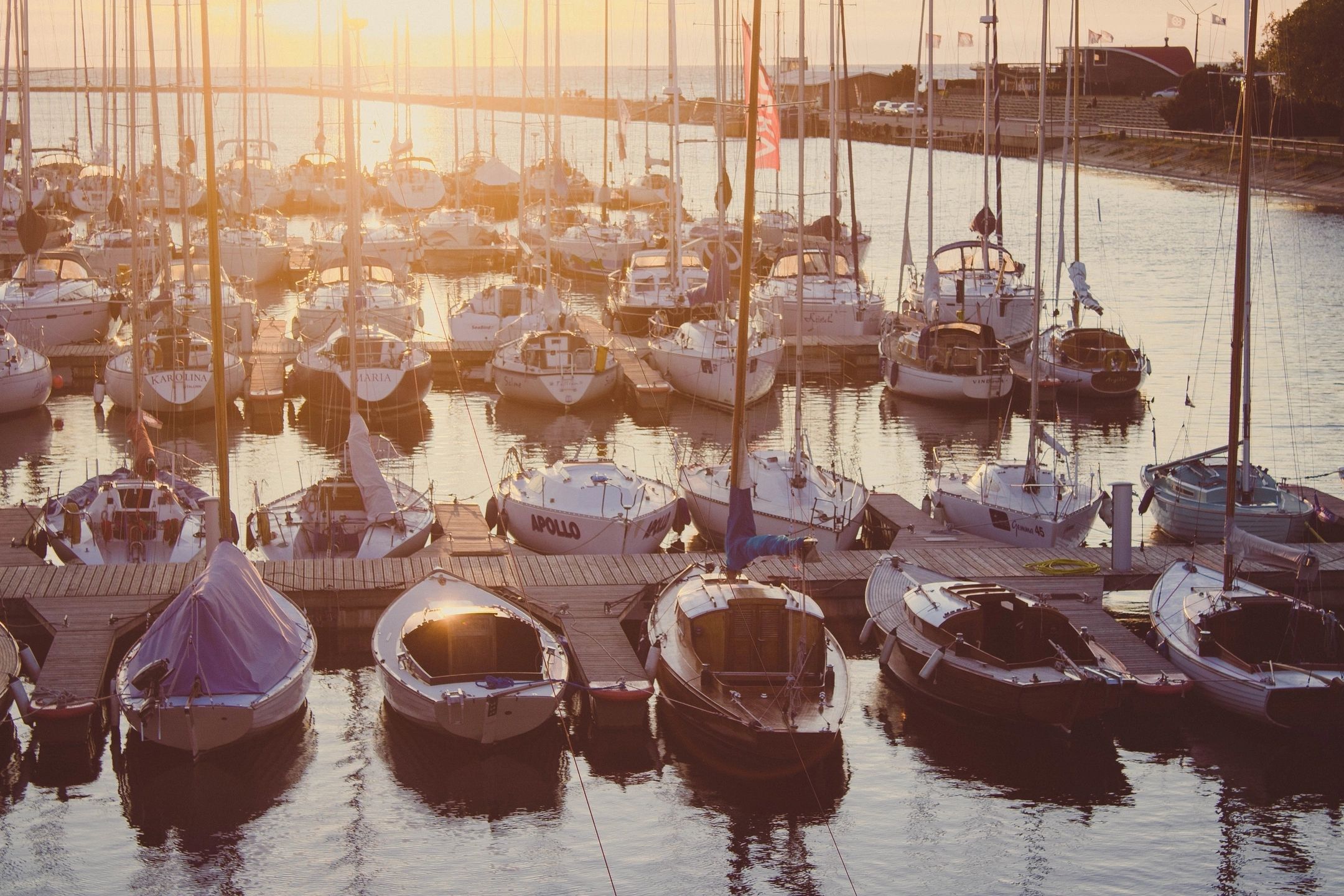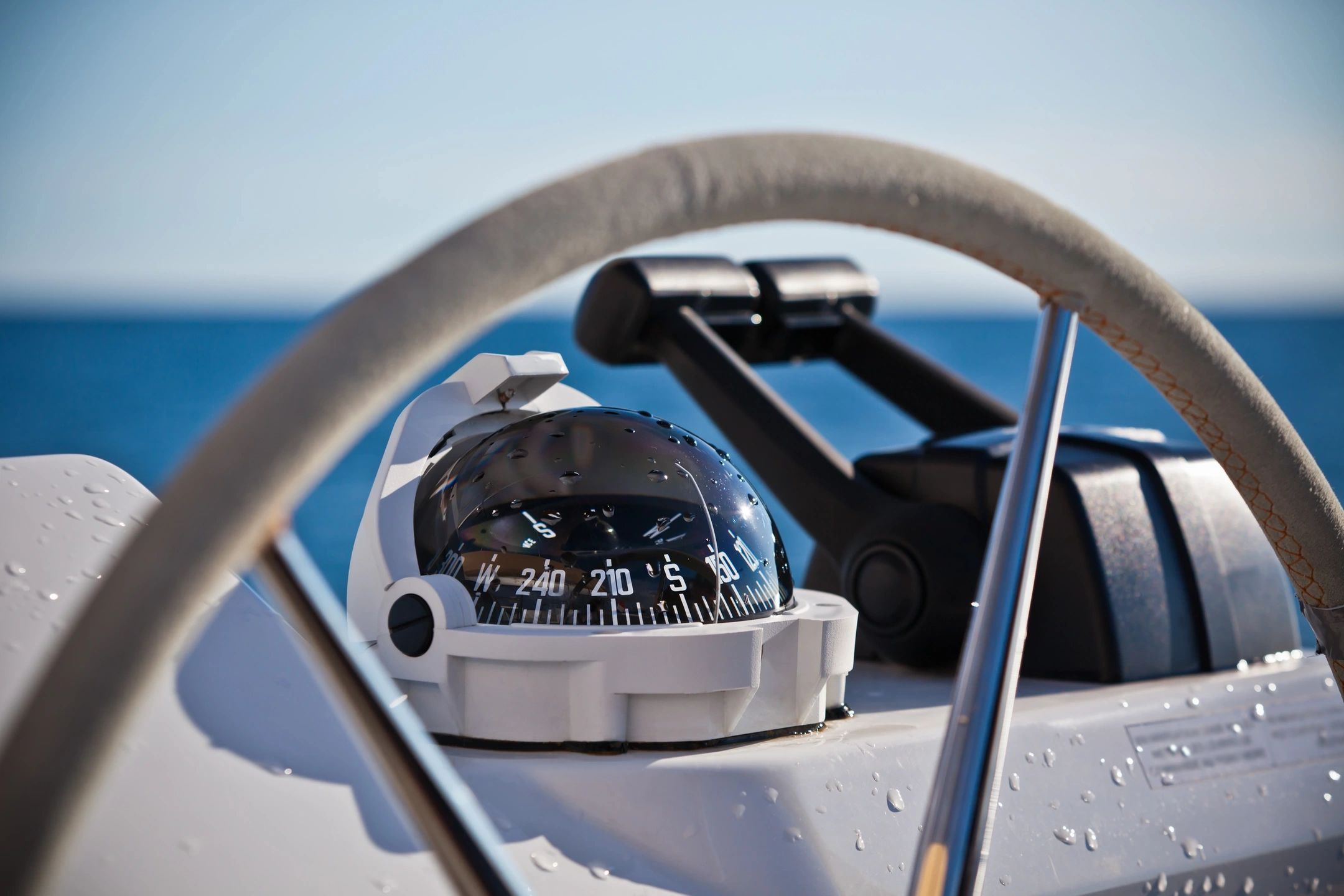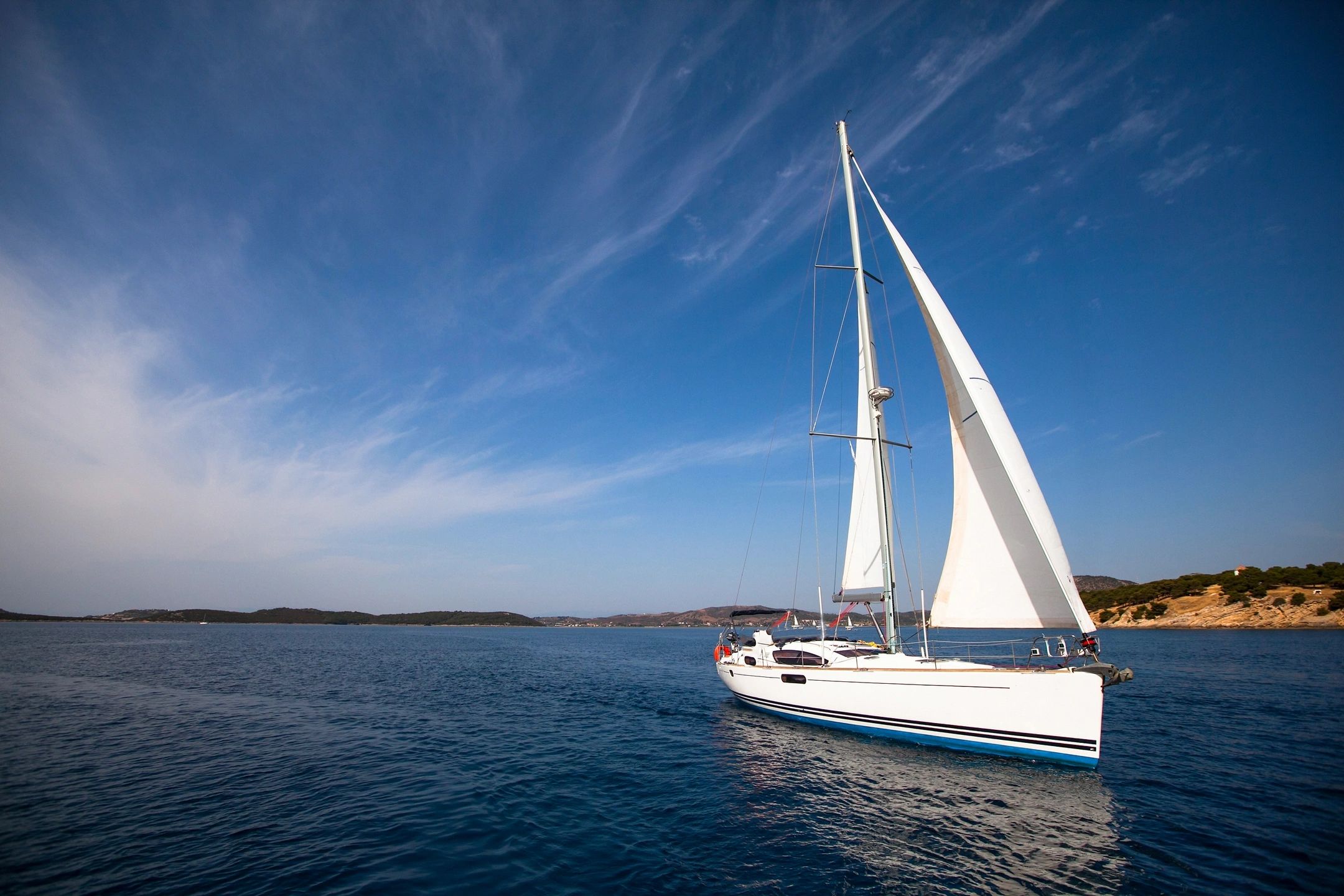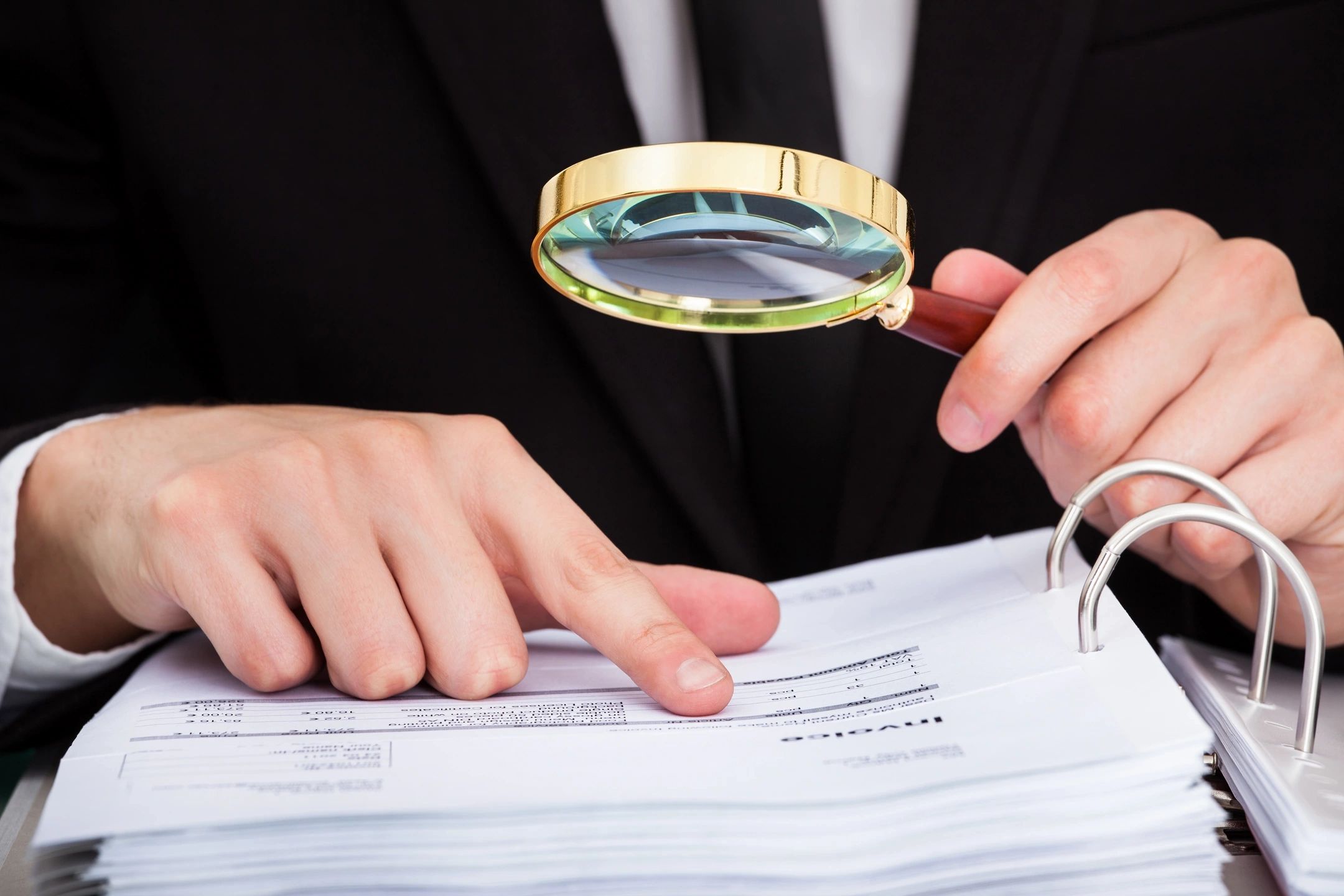North Carolina Boating Accident Lawyer
Injured in a Boating Accident? RHD Legal Is Here to Help.
Boating is a popular way to enjoy North Carolina’s scenic lakes, rivers, and coastline—but a day on the water can take a serious turn when an accident occurs. Whether you’re injured while operating a vessel, participating in water sports, or simply relaxing as a passenger, the physical, financial, and emotional impact of a boating accident can be devastating.
At RHD Legal, we help victims of boating accidents throughout North Carolina navigate their legal options. We understand the complex interplay between state boating regulations and federal maritime law, and we fight to ensure our clients receive the full compensation they’re entitled to.

Common Causes of Boating Accidents in North Carolina
Boating accidents do not happen in a vacuum–something or someone causes the accident that ultimately leads to injuries or fatalities. Here’s a summary of the most common types of boating accidents in North Carolina.
Alcohol Use
Families, friends, and even people on their own go out on their boats to enjoy time on the water. Many times as part of that enjoyment, alcohol is involved. The mix of sun and alcohol – even if consumption of alcohol does not exceed the lawful blood alcohol content (BAC) limit – can cause impairment. An impaired operator of a boat can be dangerous and lead to serious and deadly accidents. Plus, some situations may lead to criminal charges – intoxicated driving laws in most states apply to all automobiles, and that includes boats with engines.
Distractions
When family and friends are having a good time out on a boat, whoever is operating the boat may get distracted. Friends and family, however, are not the only distractions. An operator of a boat may turn their attention to the radio, their electronics, or even things like watching jet skiers or a beautiful sunset. Whatever it is, it is easy enough for an operator to lose focus on the boat and the surroundings to pay attention to something else, and because of that inattention – however momentary it is – can lead to accidents.
Driver Inexperience
Laws vary state to state on what type of experience, if any, an operator of a boat must have. Oftentimes, those requirements depend on the type of boat, too. Operating a boat may seem relatively easy, like driving a car, but there are boat safety matters that may vary from operating a boat compared to operating a vehicle. Knowing the rules and regulations, too, aids a person in the safe operations of a boat. Consider, too, that it is not just you and the boat on the water; there are other boaters, swimmers, jet skiers, and wildlife. Failure to get the right education on boat operations and safety can lead to mistakes that lead to accidents.
Fatigue
Like operating any vehicle, including a boat, fatigue is a problem for proper and safe boat operation. Fatigue can happen simply from being in the sun, but if you have been in the sun all day and swimming or sunbathing, it can all take a toll. Fatigue and operating anything, from a car to machinery to a boat, is always dangerous.
Reckless Actions
Reckless actions by boat operators or passengers can lead to accidents. Recklessness occurs when you do something that you know or should know poses serious risks. Examples of reckless include:
- Overloading the boat with too many people
- Boating in a swimming area
- Using speed that is inappropriate under the circumstances (e.g., visibility restricted)
- Using excessive speed in crowded areas
- Operating while sleepy or under the influence of drugs or alcohol
Speeding
If you have a boat that can go fast, that’s part of the lure and fun of the open water. But speeding is dangerous, even if you are the only boat in a one-mile radius. Like driving, accidents that result from speeding are often more serious and tragic than accidents that occur at lower speeds. The risk of more serious impact or collision is greater.
Defective Equipment
Boats are products. When a product or a product part is defective, it can lead to accidents. To research or report a boat safety defect, visit the U.S. government’s database on boat recalls. Examples of defective boats or defective boat parts can involve any of but are not limited to the following:
- Battery chargers
- Diving gear
- Electrical systems
- Engine components
- Fishing vessel equipment
- Fuel pump cracks
- Fuel system line leaks
- Navigational equipment (radars, rudders, etc.)
- Pilot ladders
- Railings
- Ship lift or loading equipment
- Ship conveyer belt
- Throttles
- Steering arms
- Wenches or winches
Equipment Failure
Boats must be maintained regularly. Failure to stay current on your boat’s maintenance can cause equipment to fail, and depending on what the failure is, an accident could happen. For example, if the steering or engine malfunctions, it could lead to a crash or cause the boat to capsize. Some of the most common equipment failures that require attention include:
- Poor battery connection
- Twisted fuel line
- Overheating engines
- Propeller damage
- Ignition switch failure
Causes of Boating Accidents in North Carolina
Types of boating accidents are many, and much of it has to do with the type of boat. Accidents can involve but are not limited to any of the following situations or types of boats:
- Airboats
- Boat tenders
- Cabin cruisers
- Canoes
- Defective boats
- Falls onboard or overboard
- Fishing charters
- Go-fast boats
- Inflatable boats
- Jetskis
- Kayaks
- Paddleboards
- Personal watercrafts
- Runabouts (e.g., bowriders, center consoles, cuddy cabins, and walkarounds)
- Sailboats
- Wakeboarding
- Waterskiing
- Waverunners
It is also worth noting here accidents involving propellers. Propeller injuries occur when a person comes into contact with a motorized boat propeller that is in motion. Hundreds of people are injured and dozens die annually from this type of accident. Injuries can be life-altering, especially when the moving propeller strikes a person’s head or torso, causing severe damage. Jet thrust accidents are also accidents involving the propeller where injuries are caused by the force of a propeller thrusting water and objects at people (typically people in their own personal watercraft) behind it.
Boating accidents in North Carolina can affect individuals in multiple ways, not just those on board the vessel. Victims can be found on the water, underwater, or even in the air, depending on the activities involved. For example, boating accidents can result in injuries to people engaged in:
- Scuba Diving: Divers may suffer injuries from boat collisions or entanglement with boat equipment.
- Parasailing: Accidents can occur if the boat towing the parasail experiences issues, leading to falls or crashes.
- Snorkeling: Snorkelers might be injured if a boat strikes them or if they are caught in boat propellers.
- Waterskiing: Skiers can face injuries from collisions with boats or other objects, or from falls.
- Wakeboarding: Similar to waterskiing, wakeboarders may experience injuries from falls, collisions, or accidents involving the tow boat.
- Tubing: Tubers are often injured by water impact, collisions with other boats, or even colliding with other tubers when multiple people are tubing at the same time.
In each of these scenarios, understanding the applicable laws and seeking expert legal guidance is essential for securing appropriate compensation and navigating the aftermath of an accident.

RHD Legal – Fighting for You.
Contact a Boating Accident Lawyer in North Carolina Today
By submitting, you agree to be contacted about your request & other information using automated technology. Message frequency varies. Msg & data rates may apply. Text STOP to cancel. Review privacy policy here

Common Types of Injuries from North Carolina Boating Accidents
The types of injuries a person sustains depend on the activity, type of boat, and other factors. Common types of injuries include:
- Drowning. Drowning is the most significant type of injury from boating accidents and is a leading cause of death.
- Lacerations. Propeller blades, if too close to a person on the boat or swimmers, can cause catastrophic lacerations that lead to disfiguration or require amputation.
- Electrocution. The combination of standing water and poor maintenance increases the chances of electrocution injuries.
- Whiplash. Speeding and sudden stops or turns on a boat can cause whiplash, and whiplash may not materialize immediately, which can complicate the injury.
- Spinal cord injuries. When a boat bounces due to waves or wakes from other boats, the spine is compressed and can cause injuries like herniated discs.
- Broken Bones. Due to the impact, often times arms and legs are broken, especially when a person is thrown and lands inside the boat.
Practice Areas

North Carolina Boating Laws
Jurisdiction and Applicability:
- North Carolina’s boating laws primarily cover non-commercial, recreational boating activities on inland waters. These regulations are designed to protect both operators and passengers by ensuring that vessels are operated safely and responsibly.
- Enforcement: The North Carolina Wildlife Resources Commission (NCWRC) enforces these laws, conducting safety inspections, responding to accidents, and patrolling the state’s waters to ensure compliance with boating regulations.
Operator Responsibilities:
- Licensing Requirements: Any individual born on or after January 1, 1988, must complete a state-approved boating safety course to operate a vessel with an engine of 10 horsepower or more. This ensures that operators are familiar with the rules of the water and the safe operation of their vessels.
- Safety Equipment: Vessels must be equipped with essential safety gear, including:
- Personal Flotation Devices (PFDs): There must be a U.S. Coast Guard-approved life jacket for each person on board.
- Fire Extinguishers: Vessels with an enclosed fuel tank must carry an appropriate fire extinguisher.
- Navigation Lights: Required for vessels operating between sunset and sunrise or during periods of restricted visibility.
- Boating Under the Influence (BUI): Operating a boat with a Blood Alcohol Concentration (BAC) of 0.08% or higher is illegal in North Carolina. Penalties for BUI include fines, imprisonment, and suspension of boating privileges, similar to penalties for driving under the influence on the road. Law enforcement agencies frequently conduct BUI checkpoints to ensure compliance and prevent accidents.
Accident Reporting and Liability:
- Accident Reporting: If a boating accident results in injury, death, or significant property damage (over $2,000), it must be reported to the NCWRC within specified timeframes. Prompt reporting is crucial for both legal and insurance purposes.
- Liability: North Carolina follows the doctrine of contributory negligence, meaning that if a person is found to be even slightly at fault for an accident, they may be barred from recovering any damages. This strict standard makes it imperative for boating accident victims to clearly establish the fault of the other party involved.
Maritime Law (Admiralty Law)
When Does Maritime Law Apply?
- Maritime law governs incidents on navigable waters, such as large lakes, rivers, and coastal waters used for interstate or international commerce. If your boating accident occurred on these waters, federal maritime law could apply.
- Examples: Accidents occurring on the Atlantic Ocean, the Intracoastal Waterway, or large rivers like the Cape Fear River often fall under maritime jurisdiction. Even recreational boating accidents can be subject to maritime law if they occur on navigable waters.
Key Maritime Law Concepts:
- Maintenance and Cure: Maritime law provides special protections for seamen who are injured while performing their duties. Under the doctrine of maintenance and cure, an injured seaman is entitled to daily living expenses (maintenance) and medical care (cure) until they reach maximum medical improvement.
- Jones Act: This federal statute is one of the most significant pieces of legislation in maritime law. It allows injured seamen to sue their employers for personal injury damages if the injury resulted from employer negligence. Unlike standard workers’ compensation claims, the Jones Act allows for compensation for pain and suffering, as well as lost wages and medical expenses.
- Longshore and Harbor Workers’ Compensation Act (LHWCA): This law provides workers’ compensation benefits to longshoremen, harbor workers, and other maritime employees who are injured on navigable waters or in adjoining areas used in loading, unloading, repairing, or building a vessel.
- Salvage Rights and Wreck Removal: Maritime law also governs issues such as salvage rights, where salvors can claim compensation for recovering a ship or its cargo from peril, and wreck removal, where the vessel owner may be responsible for removing a wreck that poses a hazard to navigation.


Differences Between North Carolina Boating Laws and Maritime Law
Scope of Application:
- State Law: North Carolina state law generally applies to boating activities on non-navigable waters, such as smaller lakes and rivers within the state. These laws primarily affect recreational boaters and those involved in non-commercial boating activities.
- Maritime Law: Maritime law applies to activities on navigable waters, which are defined as waters that provide a channel for commerce between states or with foreign nations. This includes not only commercial shipping but also recreational boating on larger bodies of water.
Legal Claims and Remedies:
- Under state law, individuals involved in a boating accident may pursue claims for personal injury, wrongful death, and property damage. Due to North Carolina’s contributory negligence rule, any finding of fault on the part of the injured party could bar them from recovering damages, making it critical to establish clear liability.
- Under maritime law, the scope of claims is broader. In addition to personal injury and property damage, maritime law includes unique remedies such as:
- Maintenance and Cure: For seamen injured in service of a vessel.
- Jones Act Claims: Allowing seamen to sue for negligence.
- Salvage Rights: Where salvors can claim rewards for saving property at sea.
- Limitation of Liability: Vessel owners may limit their liability to the value of the vessel and its freight under the Limitation of Liability Act, provided they can prove the incident occurred without their privity or knowledge.
Limitations on Liability:
- State Law: In North Carolina, liability for boating accidents is strict under the contributory negligence rule. If you are found to have contributed even slightly to the accident, you may be barred from recovering any compensation.
- Maritime Law: Maritime law includes provisions like the Limitation of Liability Act, which allows vessel owners to limit their liability to the post-accident value of the vessel. This can significantly reduce the amount of compensation available to victims unless it is proven that the owner had knowledge of the issues leading to the accident.
Statutes of Limitation:
- State Law: North Carolina has a three-year statute of limitations for personal injury claims, including those arising from boating accidents. However, this period may be shorter for wrongful death claims.
- Maritime Law: Maritime claims, including those under the Jones Act, generally have a three-year statute of limitations. However, certain claims, such as those involving salvage or pollution, may have different time limits.
Legal Process After a Boating Accident
Determining Jurisdiction:
- The first step in the legal process is determining whether state law, maritime law, or both will apply. This determination hinges on the location of the accident and whether the waters are considered navigable.
- Jurisdictional Challenges: A boating accident on a large river like the Cape Fear or on the Atlantic Ocean could involve both state and maritime law, creating a complex legal landscape. An attorney with experience in both areas can help navigate these complexities.
Filing a Claim:
- State Law Claims: If the accident occurred on non-navigable waters, the case will likely be filed in state court under North Carolina law. Claims might include personal injury, property damage, and wrongful death.
- Maritime Law Claims: If the accident occurred on navigable waters, the case may be filed in federal court under maritime law. Claims might involve maintenance and cure, Jones Act negligence, or limitation of liability.
Investigating the Accident:
- Investigations following a boating accident are critical to determining fault and establishing the foundation for a legal claim. This may involve:
- Collecting Evidence: Photographs, witness statements, and physical evidence from the scene.
- Accident Reconstruction: Experts may be employed to recreate the events leading up to the accident.
- Engaging with Authorities: Cooperating with both state and federal authorities, who may be conducting their own investigations.

How RHD Legal Can Help You After a Boating Accident
Navigating the complexities of a boating accident, especially when dealing with the interplay between state and maritime law, requires expert legal guidance. At RHD Legal, our experienced attorneys are well-versed in both North Carolina boating laws and federal maritime law. We understand the nuances that can make a significant difference in the outcome of your case.
Comprehensive Case Evaluation
We will thoroughly investigate your accident to determine the applicable laws and the best legal strategy. Whether your case involves state law, maritime law, or both, our team will ensure that all aspects are covered.
Pursuing Compensation
We are dedicated to securing the maximum compensation for your injuries, property damage, and other losses. Whether through negotiations or litigation, we will advocate tirelessly on your behalf to ensure you receive the justice you deserve.
Expert Negotiation
Our attorneys are skilled negotiators, capable of handling the complexities of maritime claims, insurance disputes, and settlement discussions. We understand the tactics used by insurance companies and will work to protect your rights.
Litigation Support
Should your case go to trial, RHD Legal offers robust representation with extensive courtroom experience. We are prepared to take on even the most challenging cases leveraging our knowledge of both state and maritime law to achieve the best possible outcome.
Support through Process
From the moment you contact us, we are here to support you through every step of the legal process. We understand that dealing with a boating accident can be overwhelming, and we are committed to making the legal process as smooth and stress-free as possible. Our attorneys will keep you informed of any developments, explain your options, and provide you with the guidance you need to make informed decisions.
FAQ
Frequently Asked Questions About Boating Accidents in North Carolina
Seek medical attention immediately. Then report the accident to the NC Wildlife Resources Commission, document the scene with photos and notes, and contact a boating accident attorney to protect your rights.
North Carolina follows a strict contributory negligence rule—if you are found even 1% at fault, you may be barred from recovering compensation. That’s why working with an experienced attorney is crucial.
It depends on whether the waters are considered “navigable” under federal law. Accidents on major rivers, the ocean, or the Intracoastal Waterway often fall under maritime jurisdiction.
Liable parties can include the boat operator, the boat owner, equipment manufacturers, rental companies, and even other passengers. Liability depends on who acted negligently and how the accident occurred.
You may be entitled to compensation for medical bills, lost wages, pain and suffering, emotional distress, and in some cases, punitive damages if the other party acted recklessly.
You generally have three years to file a personal injury claim under state law. Maritime claims also follow a three-year limit, but certain circumstances can affect the timeline. It’s best to act quickly to preserve your rights.
What to Expect When You Work with RHD Legal
Your Free, No-Pressure Consultation
We start by listening. During your initial consultation, we’ll review your situation, answer your questions, and explain your rights. There’s no cost, no obligation—just clarity and guidance when you need it most.
Clear Commitment & Onboarding
If we’re a good fit, we make it official. Our team walks you through every step of hiring RHD Legal, ensuring you fully understand the process, paperwork, and path forward. You focus on healing—we’ll handle the legal side.
Fighting Alongside You
Once we take your case, you’re never alone. Our legal team works aggressively to build your case, deal with the insurance companies, and protect your rights—keeping you informed every step of the way.
Pursuing the Justice You Deserve
Whether through settlement or trial, we pursue the best possible outcome for your case. We don’t just aim to win—we fight to deliver real results that help you move forward with confidence.
What Our Client's
Have to Say
At RHD Legal, every testimonial is more than kind words—it’s a reminder of why we do what we do. Hearing how we’ve made a difference in someone’s life fuels our commitment to fight for every client with care, integrity, and determination.

Wonderful team!! Kayla was so helpful and supportive. Truly couldn't have done it without them. Would highly recommend!! 100/10

"So nice to be able to recommend a trustworthy firm. They all work hard for the client and really listen to your concerns. I appreciate having the process and expectations clearly laid out. Highly recommend."

"We have truly enjoyed working with RDH Legal. They were very professional and helpful with all our questions and needs. They also made us feel important and we never felt as if we were not informed about the whole process. I definitely would recommend them to everyone. Thank you for all you did."

I can’t say enough nice things about this firm! Richard is a fantastic attorney - knowledgeable, honest, and professional. The staff is top notch. Kayla is friendly and helpful, and Sarah is an amazing paralegal - thorough, knowledgeable, and she doesn’t miss a thing. And on top of all this, they all truly care about their clients. You’re not just a number to them. HIGHLY RECOMMEND!!

Wonderful team!! Kayla was so helpful and supportive. Truly couldn't have done it without them. Would highly recommend!! 100/10

"So nice to be able to recommend a trustworthy firm. They all work hard for the client and really listen to your concerns. I appreciate having the process and expectations clearly laid out. Highly recommend."

"We have truly enjoyed working with RDH Legal. They were very professional and helpful with all our questions and needs. They also made us feel important and we never felt as if we were not informed about the whole process. I definitely would recommend them to everyone. Thank you for all you did."

I can’t say enough nice things about this firm! Richard is a fantastic attorney - knowledgeable, honest, and professional. The staff is top notch. Kayla is friendly and helpful, and Sarah is an amazing paralegal - thorough, knowledgeable, and she doesn’t miss a thing. And on top of all this, they all truly care about their clients. You’re not just a number to them. HIGHLY RECOMMEND!!

Wonderful team!! Kayla was so helpful and supportive. Truly couldn't have done it without them. Would highly recommend!! 100/10
Contact Us
- Working Hours
Monday to Friday: 8.00 AM – 5.00 PM
Saturday: Closed
Sunday: Closed
- Follow Us
